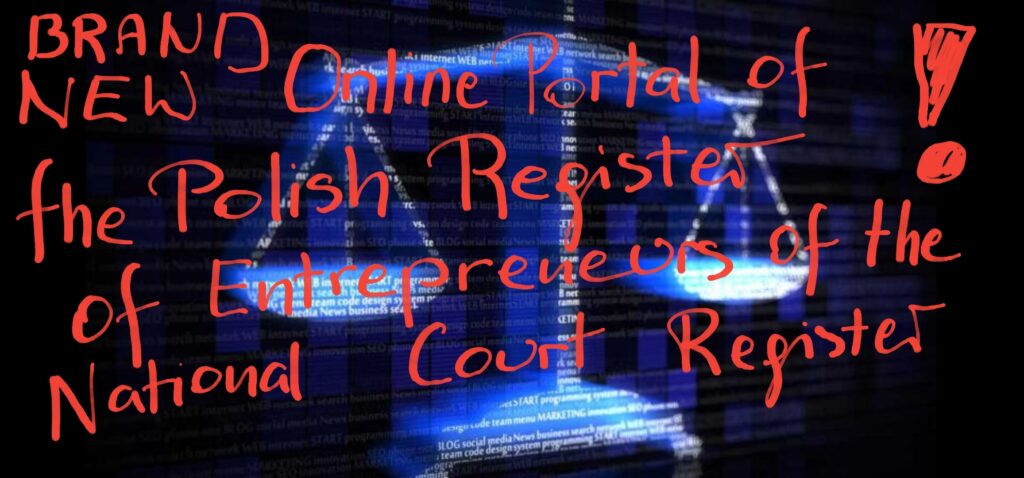INSTRUCTION ON HOW TO GO THROUGH THE POLISH ELECTRONIC PROCEDURE ON NATIONAL COURT REGISTER PORTAL TO CHANGE DATA OF POLISH COMPANY WITH INTERNATIONAL SHAREHOLDING
Brand New Online Portal of the Polish Register of Entrepreneurs of the National Court Register

On 1st July 2021 in Polish jurisdiction a revolutionary change has taken place. Namely, there has been amended an Act on the National Court Register (Journal of laws of 2021, item 112 as amended).[1] The amendment is about an introduction of an electronic registration procedure. Especially the form of filing applications for the entry in the Register of Entrepreneurs of the National Court Register will be changed.[2] The amendment mainly concerns the registration issue of the limited liability company and the partnerships.
The National Court Register Act amendment is caused by a necessity to implement the European Parliament directives and the EU’s Council directives on some of the company law aspects (2017/1132 EU; 2012/17/ EU, etc.).[3] The issue of the adaptation to the European Union law can be found in the first article (art.1) of the Amendment Act of the National Court Registration Act.




